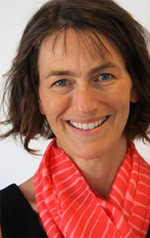BEN’S INTERVIEW WITH BARBARA FREDRICKSON, PhD
 On February 22, 2013, we had a riveting question-and-answer call with Barbara Fredrickson, PhD, Professor of Social Psychology and Management at the University of North Carolina, internationally-acclaimed expert in the science of positive emotion, and author of a new book: Love 2.0: How Our Supreme Emotion Affects Everything We Feel, Think, Do, and Become
On February 22, 2013, we had a riveting question-and-answer call with Barbara Fredrickson, PhD, Professor of Social Psychology and Management at the University of North Carolina, internationally-acclaimed expert in the science of positive emotion, and author of a new book: Love 2.0: How Our Supreme Emotion Affects Everything We Feel, Think, Do, and Become
TO RECEIVE THE RECORDING, just submit your name and email address here:



 Dr. Barbara L Fredrickson is Kenan Distinguished Professor of Psychology and Director of the
Dr. Barbara L Fredrickson is Kenan Distinguished Professor of Psychology and Director of the 